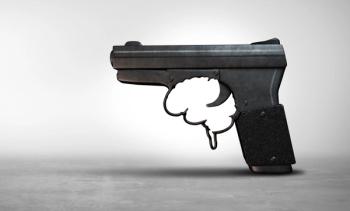
Peace and Conflict Resolution in Our American Psychiatric Association and the Mideast
Key Takeaways
- The interaction between Obama and Trump symbolizes potential cooperation between adversaries, relevant to Mideast peace efforts.
- The American Psychiatric Association did not approve a caucus on peace, conflict, and mental health, suggesting continued discussion in global mental health forums.
How can the field of psychiatry support the peace process in the APA and beyond?
PSYCHIATRIC VIEWS ON THE DAILY NEWS
At the end of my
Then yesterday, the day following that announcement, the world learned about a major advance in the Mideast in terms of peace, conflict, and mental health. Although improvement of mental health in both Israel and Gaza was not mentioned explicitly as far as I know, it has to be assumed. Some experts have conveyed that the trauma to the Jewish people has likely been the worst since the Holocaust and, for the Palestinians, perhaps worse than the Nakba in 1948.
Building on the Trump-Obama interaction, it was a combined endeavor of envoys from both the Biden and incoming President Trump’s administration that worked together to achieve the proposed ceasefire and partial hostage release.
However we psychiatrists proceed in our desire for peace and conflict resolutions, may we learn something of value from what Biden said was the hardest negotiation of his long career. Although I have no idea whether any mental health professionals were involved during the long negotiations, I am convinced that we do have special expertise and knowledge that can support increased peace not only within our individual patients, but in conflictual relationships with other countries. At the very minimum, we know much about how to help heal those who have been traumatized either directly or indirectly on all sides of this war.
Dr Moffic (he/him/his) is an award-winning psychiatrist who specialized in the cultural and ethical aspects of psychiatry, and is now in retirement and refirement as a private pro bono community psychiatrist. A prolific writer and speaker, he has done a weekday column titled “Psychiatric Views on the Daily News” and a weekly video, “Psychiatry & Society,” since the COVID-19 pandemic emerged. He was chosen to receive the 2024 Abraham Halpern Humanitarian Award from the American Association for Social Psychiatry. Previously, he received the Administrative Award in 2016 from the American Psychiatric Association, the one-time designation of being a Hero of Public Psychiatry from the Speaker of the Assembly of the APA in 2002, and the Exemplary Psychiatrist Award from the National Alliance for the Mentally Ill in 1991. He is an advocate and activist for mental health issues related to climate instability, physician burnout, and xenophobia. He is now editing the final book in a 4-volume series on religions and psychiatry for Springer: Islamophobia, anti-Semitism, Christianity, and now The Eastern Religions, and Spirituality. He serves on the Editorial Board of Psychiatric Times.
Newsletter
Receive trusted psychiatric news, expert analysis, and clinical insights — subscribe today to support your practice and your patients.







